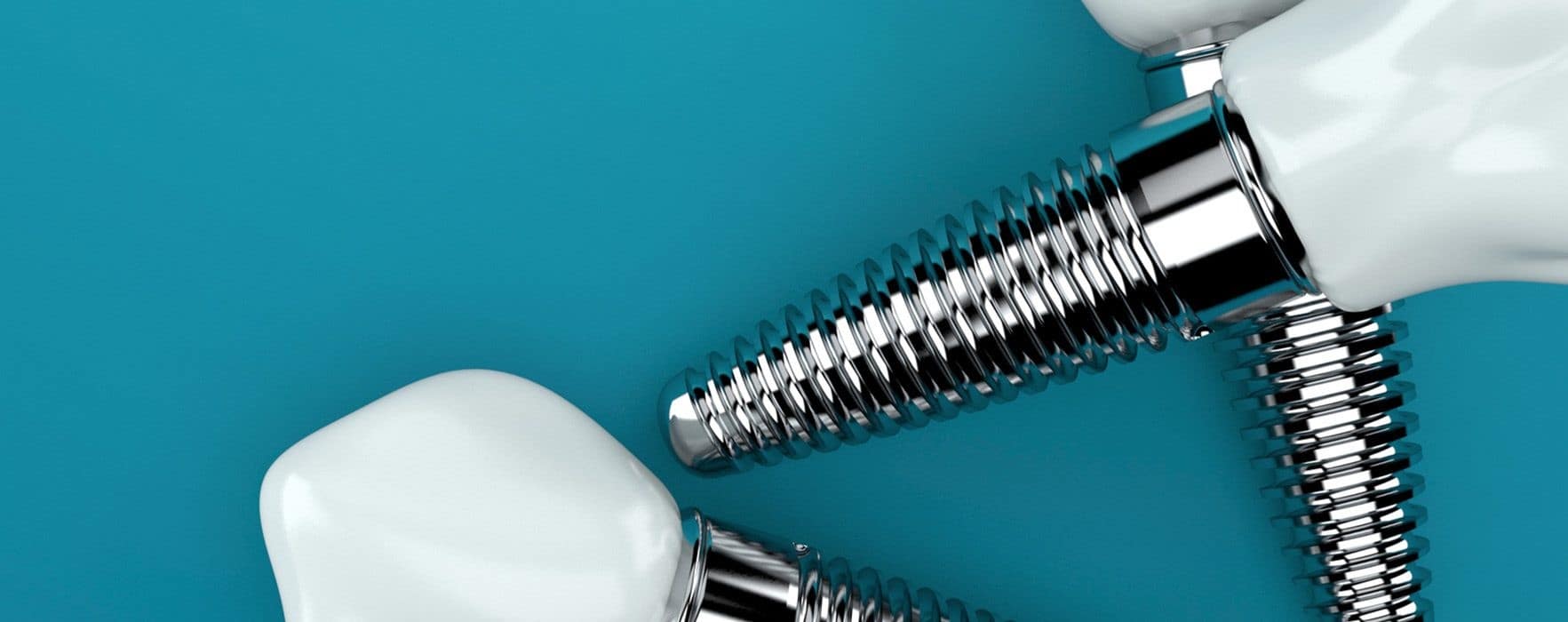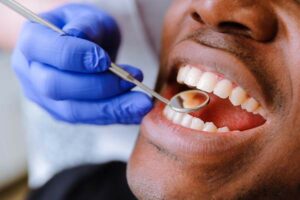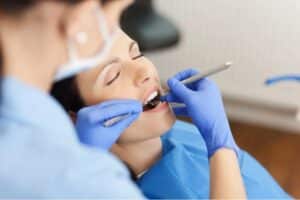Dental implants are truly designed to last a lifetime and to require little professional care after their completion. However, their longevity is directly related to the health of your gums and your daily cleaning techniques. This is because the accumulation of bacterial plaque near or around the implant increases the risk of tissue or bone-level infection. The prevention of this condition, called peri-implantitis, is in your hands. If you smoke heavily, you are within the group of people with implants that have the highest risk of malfunction. If you have had periodontal issues in the past or present it is important to attend professional cleanings every 3 to 4 months, according to your dentist´s recommendations, since period is a condition that tends to return and can endanger your implants.
It is important to note that plaque and bacteria stick more into implants because their surface is not as smooth as the enamel of a natural tooth. Even if the components of an implant are perfectly adjusted, they may not be perfectly smooth, as they have grooves and threads. Most of the times these are completely covered by gum, but there are occasions in which some of the threads or the head of the implant is exposed and requires careful cleaning. Whether you have a single implant restoration or a full-arch denture over implants, regular home care is instrumental to keep an implant disease-free.
Here are some tips to clean your implants thoroughly at home.
- Brush your teeth at least twice a day with a soft-bristled toothbrush. The toothbrush can be sonic, manual, or automatic. If you have little dexterity with your hands or wrist, your dentist will probably recommend an automatic or a sonic toothbrush. Nylon-coated interdental brushes are also very helpful for hard-to-reach corners and beneath a fixed denture. You can even dip it in alcohol-free antimicrobial rinse or gel for a better effect.
- Avoid abrasive toothpaste, because this can scratch the porcelain and any exposed surface of your implant. A titanium implant has an anti-corrosive surface that if damaged can result in future metal corrosion.
- Floss daily. All teeth need this step, but implants need it more because the implant crevice tends to be deeper than for natural teeth. This means more accumulated bacteria in the area. To floss, insert it on contacts on both sides of the implant, wrap in a circle and crisscross in front, switch hands and gently move in a shoe-shine motion.
- Dentists also highly recommend the use of a water irrigator. Waterpik is the safest and most effective brand. Use it once or twice a day on medium. If there is inflammation, you can dilute non-alcohol antimicrobial rinse in a 1 to 10 proportion. The water irrigator will be a great help to reduce plaque in hard-to-reach areas, especially if you have fixed prosthesis.
- If you wear a removable snap-on the denture, clean any locators, rings, or clips that are in your mouth. These will probably need replacement over time. Inform your dentist if any is missing or damaged.
- Attend your regular professional cleanings. Your dentist will clean the areas you might normally miss. They will also remove your fixed denture to clean it in the inside. In addition, you can get feedback from him on how you have been cleaning your implants.
Good oral hygiene is transcendental for a healthy implant. Follow these tips and you will enjoy a long-lasting dental implant. Remember to ask your dentist for any personalized instructions on cleaning techniques. Costa Rica Dental Team is a leading dental clinic in dental implants. For any questions contact us to arrange a consultation.




